“‘Are you recording all this?’ she’ll say.
“I show her my small recording machine. ‘As much as I can.’
“‘Do you add details later?’
“‘I don’t have enough tapes. Or batteries.’
“‘That’s why you need the bigger machine.’
“But the so-called machine does not work, if it ever did, and without it everything is falling apart. I tried to tell her this once, Katy. I tried to tell her that there’s no evidence that the machine ever worked at all, or that it was even a machine for recording stories. But she is right about one thing, without a record of what happened, it’s hard to know what to do. Among ourselves, at night, in our sleeping bags, we’ll speculate about the war, and the documentary about the war, and if that’s even the right word for it, and about how long it’s been going on, and how many people have died, and whether it involves the entire world or not. There’s really no way to know. Nothing works. We’ll do everything by hand.
“‘Play me something from last week,’ Katy will say. She takes (will take) two cigarettes from a desk drawer and then hesitate a moment and then put one away. Maybe she thinks I don’t smoke. She puts her feet up on the desk — she is wearing black army boots and green fatigues. Where her pant leg is pulled up a little I’ll see a tattoo of a cartoon face on the white flesh of her calf. I play her some sound from the last time, when we decided to use the catapult against a helicopter that came too close. John Barth and I carried it up to the roof, navigating the narrow metal staircases, and placed it between the gray ventilation ducts. We secured it with the harness, and John aimed it while I targeted it on the copter. After three misses we finally hit.
“‘That part’s important. Put more there,’ she’ll say.
“‘What part?’
“‘About how to use it. The weapon. In case we forget and someone else has to.’
“As absurd as it is — for who is ever going to want to hear about this or any other incident with the helicopter? — I’ll tell her I will and then keep playing the part about the violent kick of the catapult, and how it shook the roof, and how the third cinder block leapt out of the throwing tin, and how after the block crashed through the pilot’s window the helicopter just slowed down and spiraled around slowly and fell. It had happened so many times before that we didn’t even run to the edge and look over it like we did the first dozen times we shot something out of the sky. Jesus, how many helicopters could there be? We had brought down at least 40 or 50. Then one night John said to me — he was smoking like he always did at night— the reason there are so many is because it’s the same one.
“I’ll feel the screen contracting and expanding, like a breathing lung. I’ll shift from me to a character playing me to a character who’s playing someone who’s playing me and then back to me again.
“I’ll ask John B. what he means, though I had thought it myself before. That’s why the helicopter always looked the same, and why it returned to the same spot and hung there like an emblem and waited to be taken again and again out of the sky.
“‘Have you ever noticed how it always comes at the same time of day, from the same direction, and how we always hit it on the third try? I’m just asking.’
“‘I guess you’re right,’ I’ll say, pretending that I had never thought of this before. We don’t know where the helicopters are from, or if they are friendly or not, but when they come too close we shoot them down just to be safe. These are real weapons. They kick back hard when you fire to remind you of what you’re fucking with.
“Some of us believe that the real fighting has been over for a long time, and that this is just what’s left. None of us has actually seen, as far as I can tell, anything organized enough to be called a war, or a documentary about a war, and we have never been attacked in a serious way. So that’s not war, is it? We think there must have been a war, or at least some kind of terrible fighting, and that we are what’s left, and that there are probably other people like us scattered around the land. But we’ve never been instructed to actually go out and kill, or pretend to kill, anyone.
“If we could escape the city maybe we could find out. But every time we try to get out we are shot with bullets or blanks, either by those trying to keep us in or trying to keep us out. We don’t know.
“Katy will get up, flick her burned-down cigarette out the window, and tell me it sounds too much like a journal or a memoir, too much like the private experiences of an uninterested and maybe coerced observer. She’ll ask me don’t I want to be a writer? Don’t I want to be a sound man? She tells me to put more detail in, more about the weather, the smells, the bug bites, the bats, the black smoke that rises continually on the horizon like some forever burning underground oil field, more about the secret romances, the way this building seems haunted, the bodies we found buried beneath the floor of the boiler room, Stu’s suicide last month. She has more suggestions, but all I can notice are the silver rings on her fingers, the shape of her hips beneath her fatigues. She is someone I could hold, on screen or off.
“And then Stu’s last words will come back to me, what he said the day before he hung himself. ‘The only way to get out of here is to kill someone.’ And what he said was just the boldest, bravest statement of what we were all thinking, because maybe we all had this one shared memory, this one fact. But the secret beneath that truth involved a sacrifice that no one was brave enough to try yet. And yet this one question was slowly forming in all our minds: by killing another, could you escape unmolested out of the city? But why did we think this? Was it part of the documentary, if that’s what this is? A sort of twist that’s so unreasonable that it actually makes sense. At night I’ll lie in my bunk and work out the formula, which in the dark is perfectly logical. In exchange for escape, you need to kill someone. How or why this is so doesn’t matter to me; it’s just a brute fact that rises up in my head and won’t go away.
“When Stu hung himself we all knew why. It was because he was so good. Too good. It was because Stu, he would rather kill himself than someone else. He’s listed special in the credits for this fact alone. Your name will be there too, but for a different reason,” Laing says, looking at me there in that Wisconsin motel room with the sort of intensity that destroys the distinction between love and hate. “And your daughter’s name. And the names of the missing children.
“The truth is, my memory is better than anyone knows. It seemed the right thing to do, to lie about it, when they first brought me here. After all, I didn’t know them, and how could I believe what they told me? During the interrogation, as they poked me gently through the cage with sticks (method acting crossing over into something else) I knew they wouldn’t kill me, and I could have told them the truth: that I remembered. Not enough to mean anything, but enough to be sure that there was something before this place. Just images and sounds: A girl’s hand in mine. A lightning storm in the summer. The phone ringing in the middle of the night. Human ashes. Men and women falling from the Towers. The house with the old woman down the dusty road near where I grew up. A friendly dog that suddenly turned on me and seized my ankle at a picnic. The flapping of a kite stuck in a tree at that same picnic, a scene from a movie bathed in blue light with a Well-Dressed Man. I remembered these things, and others, but I haven’t told anyone about them. I keep two sets of tapes, one that I play for Katy to prove to her that I am keeping details so that we can have a collective memory, and one that I keep hidden that describes what I really do remember.
Читать дальше
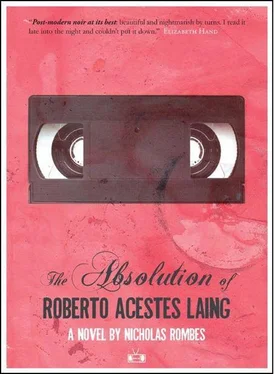
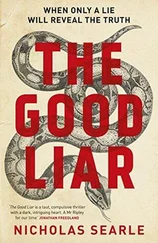
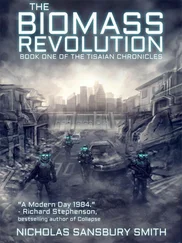
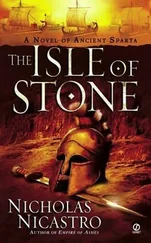

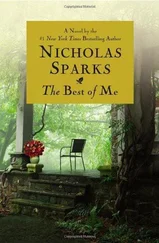
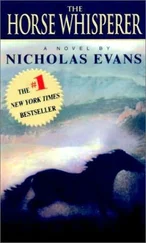
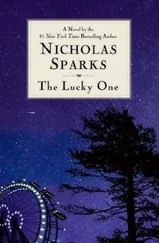
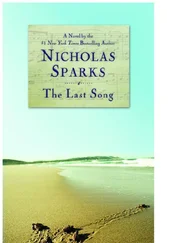
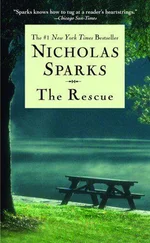


![Nicholas Timmins - The Five Giants [New Edition] - A Biography of the Welfare State](/books/701739/nicholas-timmins-the-five-giants-new-edition-a-thumb.webp)